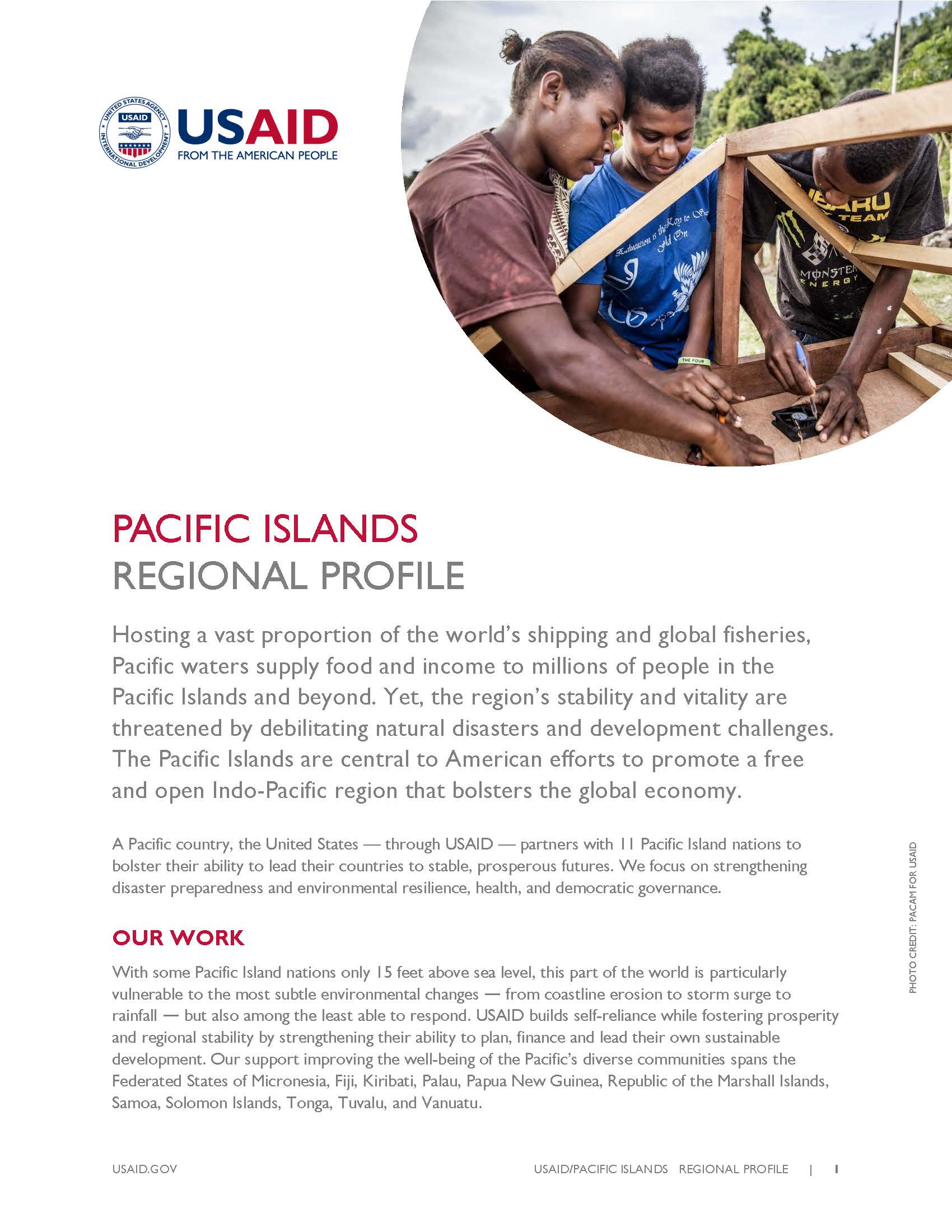Speeches Shim
USAID Pacific Islands Regional Profile ![]() (pdf - 966k)
(pdf - 966k)
With some Pacific Island nations only 15 feet above sea level, this part of the world is particularly vulnerable to the most subtle environmental changes — from coastline erosion to storm surge to rainfall — but also among the least able to respond. USAID builds self-reliance while fostering prosperity and regional stability by strengthening their ability to plan, finance and lead their own sustainable development. Our support improving the well-being of the Pacific’s diverse communities spans the Federated States of Micronesia, Fiji, Kiribati, Nauru, Palau, Papua New Guinea, Republic of the Marshall Islands, Samoa, Solomon Islands, Tonga, Tuvalu, and Vanuatu.
DISASTER PREPAREDNESS AND ENVIRONMENT
Intensifying natural disasters and sea level rise drown growth and development, threatening the food security and livelihoods of some 8.5 million people who call the Pacific Islands home. In 2018, USAID bolstered the capacity of 118 institutions and nearly 8,000 individuals across all partner nations to strengthen their resilience to extreme weather events and adverse environmental changes. For example, the Government of Palau adopted USAID guidance to train personnel how to manage the devastating effects of stormwater. USAID also supports disaster preparedness, relief and reconstruction, and promotes biodiversity conservation and sustainable natural resource management in Papua New Guinea.
HEALTH
Papua New Guinea suffers from the highest rate of HIV/AIDS in the Pacific Islands. USAID works with the government and civil society to reduce HIV prevalence and prevent gender-based violence among vulnerable populations. USAID also partners with the Government of Papua New Guinea to effectively respond to multidrug-resistant tuberculosis and was instrumental in helping to slow the 2018 polio outbreak.
DEMOCRACY AND GOVERNANCE
Relatively new democratic institutions, weak rule of law and nascent civil society undermine the Pacific Islands’ capacity to become self-reliant. USAID reinforces the foundations of good governance by encouraging all citizens — including women, youth and other marginalized groups — to participate in democratic processes. USAID also promotes government accountability and transparency by encouraging citizen engagement and implementation of effective policies.


Comment
Make a general inquiry or suggest an improvement.